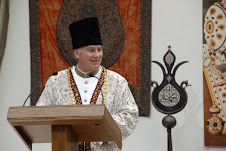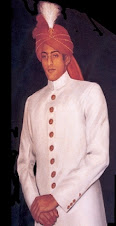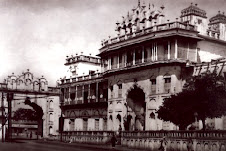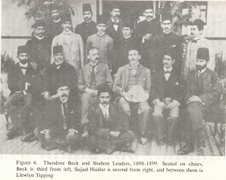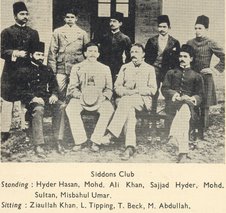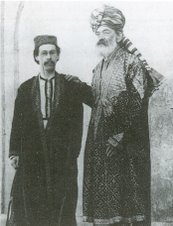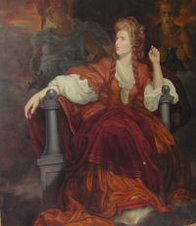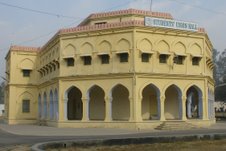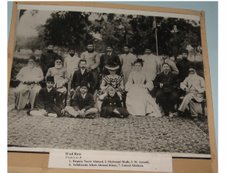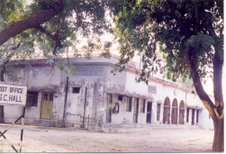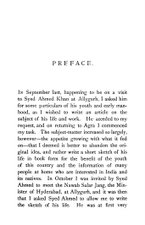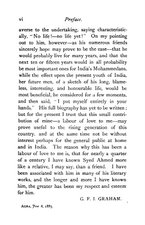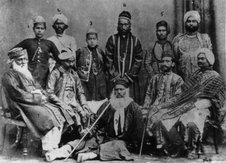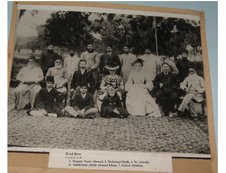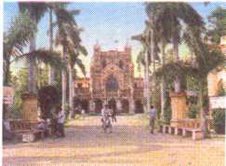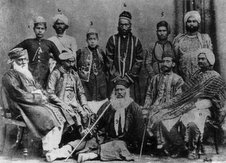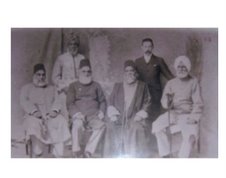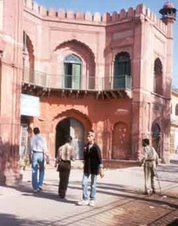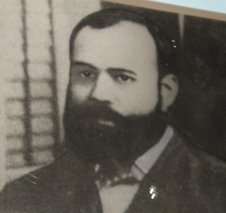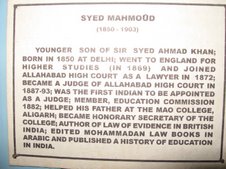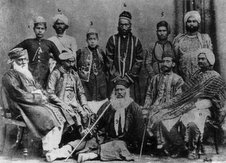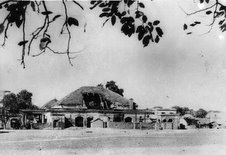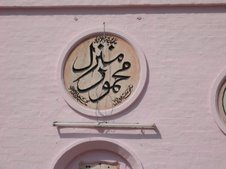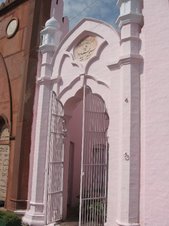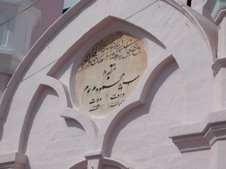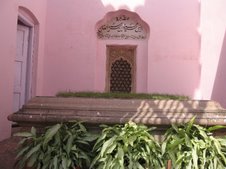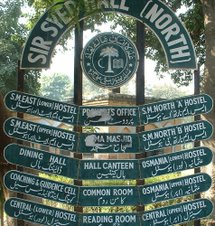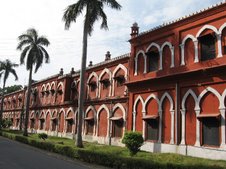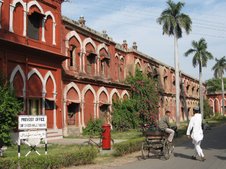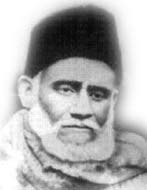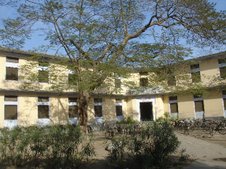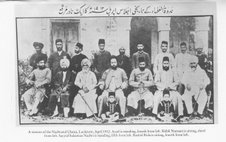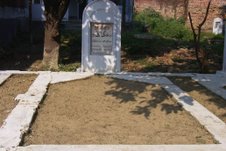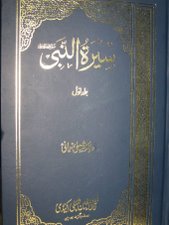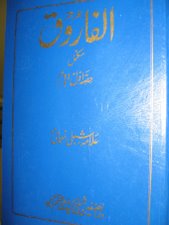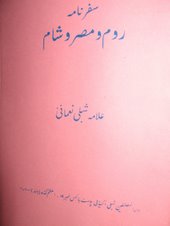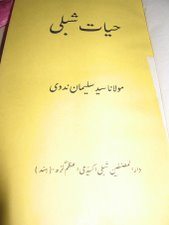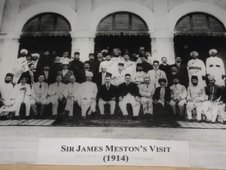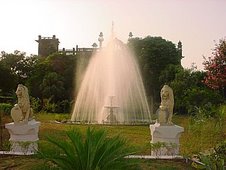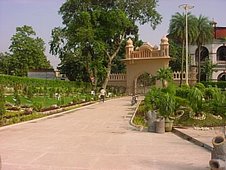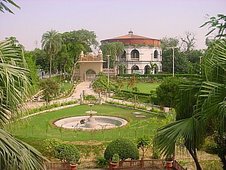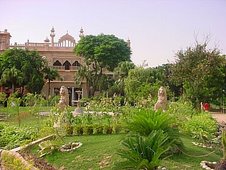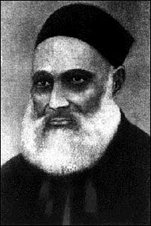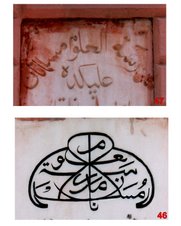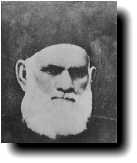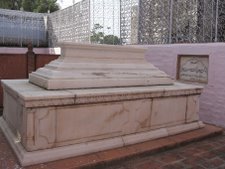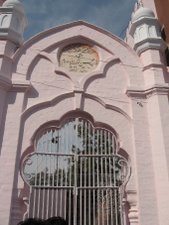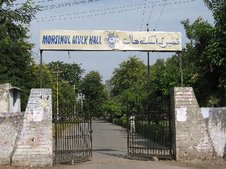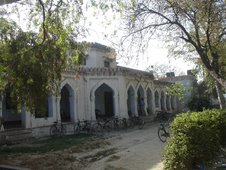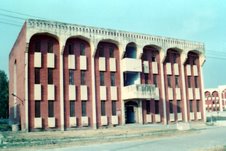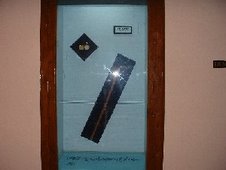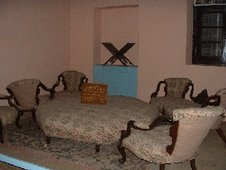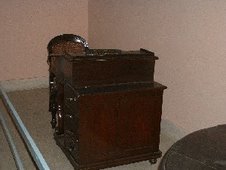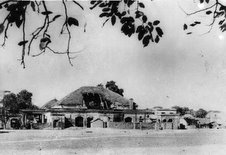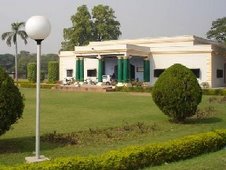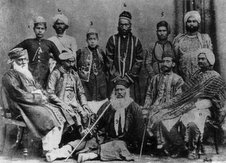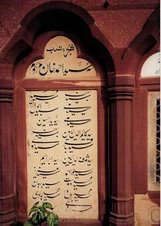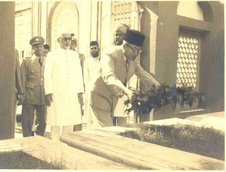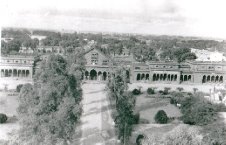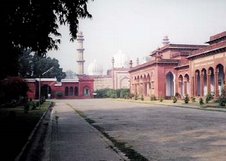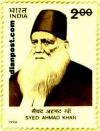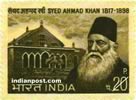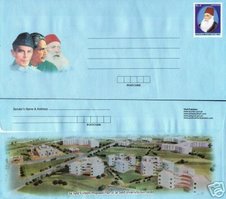Nawab Viqarul Mulk
Mushtaq Hussain, Nawab Viqarul-Mulk
Born: 24th March, 1841, Amroha (UP)
Died: 27th January, 1917, Amroha (UP)
Secretary of MAO College Board:
15th Dec-1907 to July-1912
Biography: Viqar-i-Hayat
Muhammad Ikramullah Khan
Aligarh: Muslim University, 1925.
The association of Maulvi Mushtaq Hussain known as Viqarul Mulk with Sir Syed began from his early career when he worked under him for some time. Sir Syed was highly impressed by his capabilities.
Nawab Viqar-ul-Mulk was born in Amroha (UP) and started his education at a maktab and later on became a pupil of Maulvi Rahat Ali Amrohi, under whom he learned advanced Arabic, Hadith and Fiqh. He later joined government services where he came in contact with Sir Syed Ahmad Khan in 1861 in the United Provinces (UP).
In 1866, he started his career as a humble worker of the Aligarh Movement. He also became a member of the Scientific Society. In 1870, he was awarded second prize in an essay competition arranged by the Society for the Promotion of Education among Muslims. The subject of his essay focused on bringing about an educational renaissance among the Muslims.
In 1875, he was invited to serve in Hyderabad State under the British. He continued to serve for 17 years and as a result of his meritorious services, he was elevated to the rank of a Nawab, his full title being Nawab Mushtaq Hussain Viqar-ul-Mulk. He served the state of Hyderabad from 1875 to 1892.
Nawab Viqar-ul-Mulk was a member of the Shimla Deputation in 1906. He wanted the Muslims to organize themselves politically and to safeguard their political rights. Starting his political career with the Aligarh Movement, he represented and guarded the Indian Muslim cause at few significant events which includes the Shimla Deputation.
Viqarul Mulk was one of the most ardent followers of Sir Syed and a very active worker of his camp. For the Scientific Society he translated a book ‘French Revolution and Napoleon’. When the College Fund Committee was formed, he became one of its members and worked ceaselessly for popularizing the movement of Sir Syed. He raised a huge amount of Rs. Seven Lakhs and 50 thousand for the establishment of the M. A. O. College.
After the death of Mohsinul Mulk he was elected unanimously Secretary by the Board of Trustees and took over charge in January 1908 when he was 67. He had sharp differences with the European staff of Aligarh College but Sir Syed and Mohsin-ul-Mulk believed in Anglo Muslim alliance. He, therefore, tried to put the necessary checks on the unquestionable authority of the Principal, which led to a serious clash between him and the European staff resulting in the resignation of Principal Archbold. The matter became so serious that it went to the level of Lt. Governor. However, Viqarul Mulk did not yield on the question of autonomy of the Institution. From a political point of view, his secretary ship was hard and stormy but he worked with courage.
Viqarul-Mulk had strong religious bent of mind and did not wish the students to grow up without a full share of religious training. He made it clear that those who did not say their prayers were liable to be turned out of College. This pleased the Ulemas who were opposed to English education (like Maulana Ashraf Ali Thanwi). They now supported the College and like Maulana Abdul Bari of Firangi Mahal chose the Aligarh College for education of their own children. Viqarul Mulk was primarily a leader of the Muslim community and he was one of the founders of the Muslim League in 1907 in Dhaka. It was during his Secretary ship of the M.A.O. College that intense efforts were made to set up a Muslim University at Aligarh. He succeeded in collecting donations for this purpose. Thus it may be said that after Sir Syed he was the most eminent figure behind the Aligarh Movement.
During the life of Sir Saiyad Ahmad, the Aligarh Movement was confined to the upper and middle class muslim society. Mohsinul Mulk widened its activities and Viqarul Mulk made it a mass movement creating Aligarh a Centre of Muslim intelligentia.
By 1915, he was paralyzed by a stroke. He passed away on January 27, 1917, and was buried in his family graveyard at Amroha.
Humanism of an Ultraconservative:
Viqar-ul-Mulk- has carved a niche for himself in the history of the Aligarh movement as Sir Syed's close confidante and the Secretary of the Board of Trustees of the MAO College from 1907 to 1914 during a very turbulent phase of the history of the institution. He also played a role in shaping far-reaching political developments as one of the founders of the All India Muslim League of which he was the first Joint Secretary. By all accounts he was a very stern, uncompromising person not given to levity and humor so characteristic of the Muslim elite of the age. Someone writes of him as a person "who commanded respect and fear rather than affection." Without going into his biographical details it will be sufficient to note that Mushtaq Hussain resigned his position as Tehsildar in UP as his Collector was not agreeable to his taking a few minutes off for the Zuhr prayers. It was after this confrontation that Sir Saiyad helped him get employment in Hyderabad here he made long-lasting contribution to Revenue administration and was instrumental in making Urdu-instead of Persian- as the official language of the largest princely state in the British India. We shall see an extraordinarily `human' Viqar-ul-Mulk in the following account which is based on "Khutoot-i-Viqar- ul-Mulk" compiled by his youngest son Mr. Mushtaq Ahmed and published by the AMU in 1974.His eldest son, Mohammed Ahmed (1868-1896), went to England to qualify as Barrister. There, he married a young lady, "Shelly". The couple settled down in Bangalore while Viqar-ul-Mulk was still serving in Hyderabad. Mohammed Ahmed died in Bangalore at the age of 28 after a brief illness leaving a young widow and one year old daughter called "Hameeda". By then, Viqar-ul-Mulk had left Hyderabad, and returned to his native Amroha in UP. The widowed daughter-in- law and the grand daughter joined him there. The misfortunes of the family did not end; Hameeda was claimed by cholera at the age of five. Following the death of the daughter Shelly decided to return to her native England and Viqar-ul-Mulk, despite financial difficulties- after all he was only the 'title holder' of Nawab, but was otherwise a pensioner-ensured that the daughter-in- law received regular remittances for her upkeep. This arrangement went on for a number of years until she wrote to him on 6th January 1906 informing that she had received an inheritance of more than 10000 pounds and requested him to stop the financial assistance rather quaintly called "Pin Money". The following excerpt from her letter is worth quoting; " Let me in the fullness of my heart again express my loving gratitude to you for the fatherly care you have taken of me ever since you knew of me and during my widow-hood. I am thankful beyond words to you and especially now that you are relieved from the extra expense which you have so generously given and continued un-interruptedly. In reply, Viqar-ul-Mulk wrote to her a letter reproduced at pp 44-46 of the compilation. That being in Urdu is not being reproduced. It may be explained that the Nawab knew no English- he wrote to the daughter-in- law in Urdu; the originals were translated in English by his son-in-law Mr. Sibghatullah. We may only note the substance of what he wrote. The Nawab saheb mentioned that for long he wanted to tell something to Shelley but had so far refrained from doing so lest she misconstrued that as being intended to relieve his financial burden. Now that the situation has changed, he would suggest that she should give a serious thought to getting remarried. I venture to translate the relevant part of the letter as under; "Let me assure you that if one of my daughters had faced a similar situation, I would not only give her a similar advice but would have also tried to see that my advice was acted upon. … If you heed this advice, let me assure you that our relations will continue as before. If God (the Nawab uses `khuda') blesses you with an issue (from the second marriage), my affection for that off-spring will be the same as with the child of my own daughter. My hand of friendship will extend towards any family with whom you may choose to establish such relations. All this is on account of the affection which I have naturally for you and which shall always remain thus. My greatest satisfaction, if you act on this advice, will be that when my time comes I can leave this world unencumbered with the painful thought of your troubled life". The reply of the doting daughter-in- law is as interesting and its relevant portion (p-47) deserves to be quoted; "It is an extremely kind one and shows great delicacy in that you never mentioned the subject of my re-marriage whilst I depended on you for support.”My dear Mian, to be perfectly candid with you, I have no wish to marry again- there is no man who can take my dear husband's place. Probably, there are plenty of men who would not object to having me now that I have some money, and those I would scarcely marry. But under any circumstances I would prefer to die the widow of Mohammed Ahmed." To this the father-in-law replied (17th May 1906) "I realize that it is not appropriate on my part to write further in the matter; Nevertheless with apologies, I would like to submit that the matter will bear reconsideration at a future date. "The last word on the matter was said by the daughter-in-law who wrote; "I shall always think with loving gratitude of your care of me during all these long years of my widowhood. No English woman ever had a better father-in-law than I, although some are very good indeed."
The editor of `Khutoot-i-Viqarul Mulk” mentions that Shelly did not remarry and passed away at a fairly advanced age.This brief write-up do not admit of any rigorous analysis of the pognanant episode. It will be sufficient to note here the unreliability of stereotyping personalities. It was Sir Saiyad who wrote of Viqar-ul-Mulk, “I believe that Mushtaq Hussain would not change his opinion even if God revealed Himself against it" (quoted by Francis Robinson in "Separatism among Indian Muslims" pp 399-400; Oxford 1993). We need not question the judgment of Sir Saiyad but take note of the multi-layered nature of human personality. At an altogether different plain, the facts mentioned here invite the serious scholar to examine the human side of `Muslim orthodoxy' and whether it holds certain lessons- or at least provides `points to ponder'-for the current, self righteous orthodoxies with their rigid world views. In any case, the episode deserves to be widely publicized as providing new insights in the social life of the Muslim gentry.
(Source: AMUNetwork: by Mr. Naved Masood)
Viqarul Mulk Hall:
During the Vice Chancellor ship of Sir Ross Masood, Aligarh Muslim University honored Viqarul Mulk with naming the first Hall of residence outside of original MAO College campus after him in 1932. Viqarul Mulk Hall have four hostels: Jubilee Hostel, Marris Hostel, Muzammil Hostel and Nasrullah Hostel .
Compiled by:
Afzal Usmani






